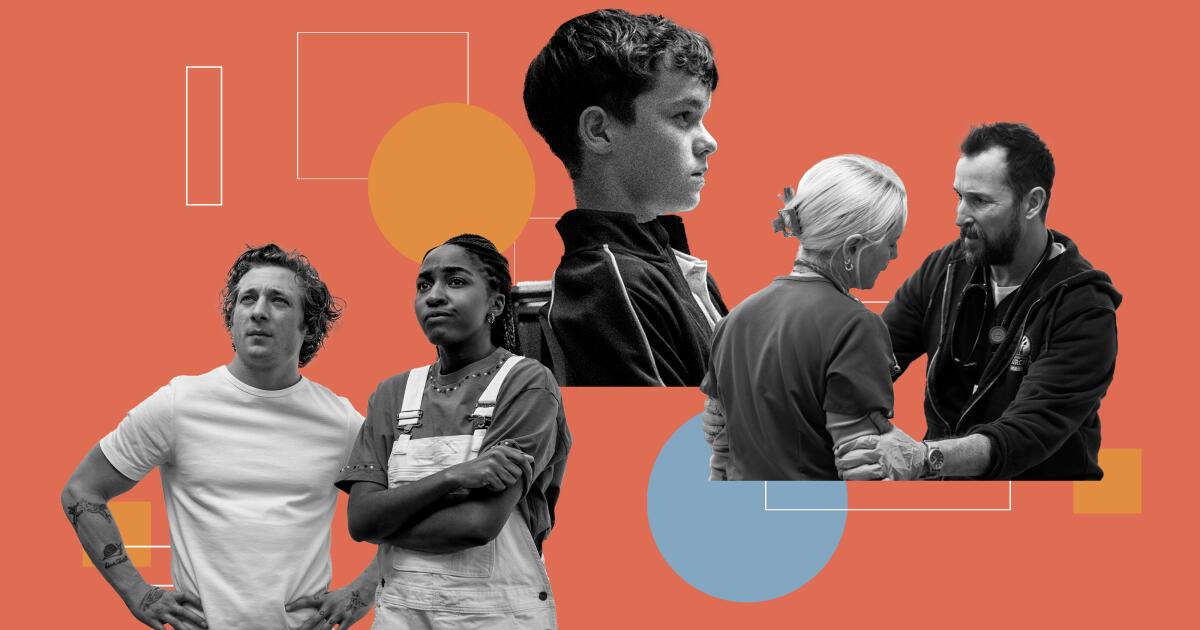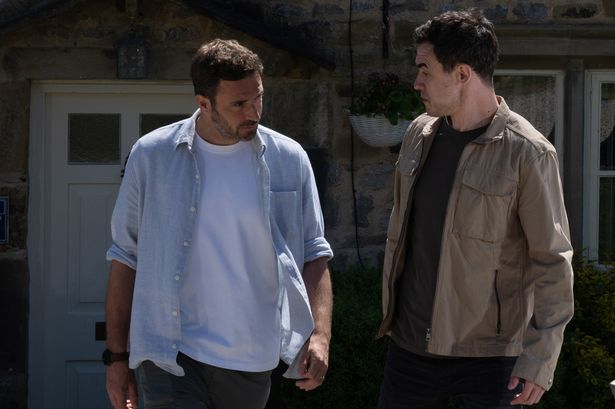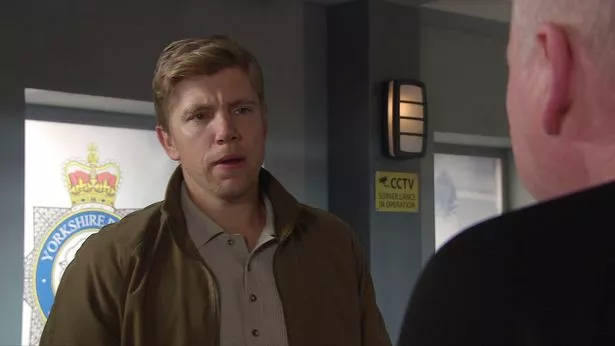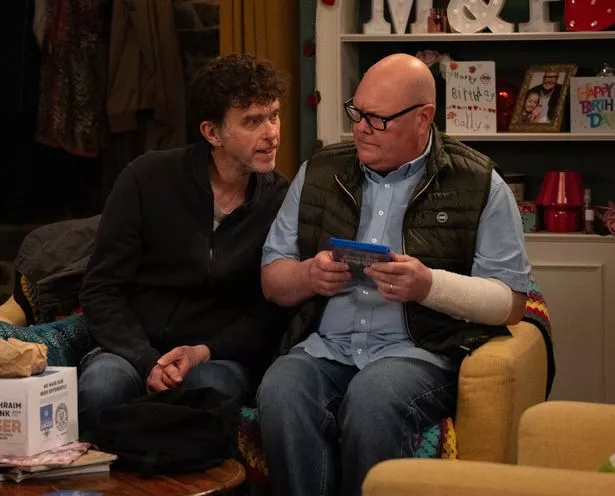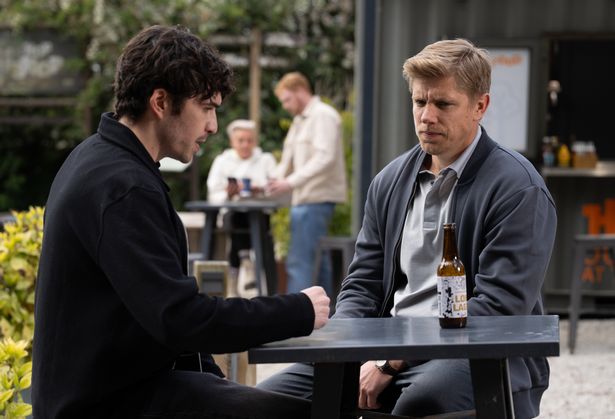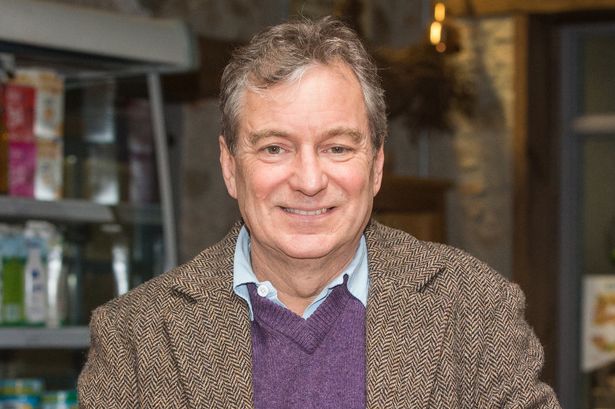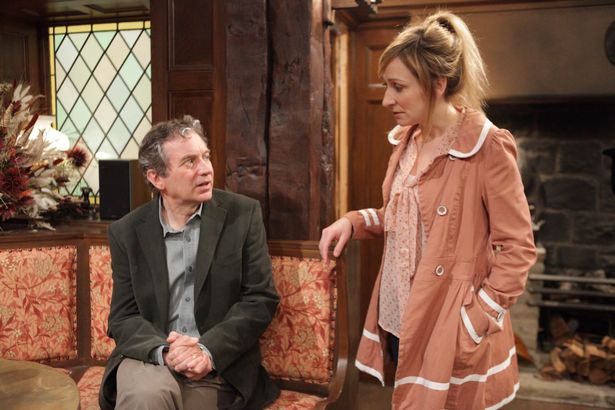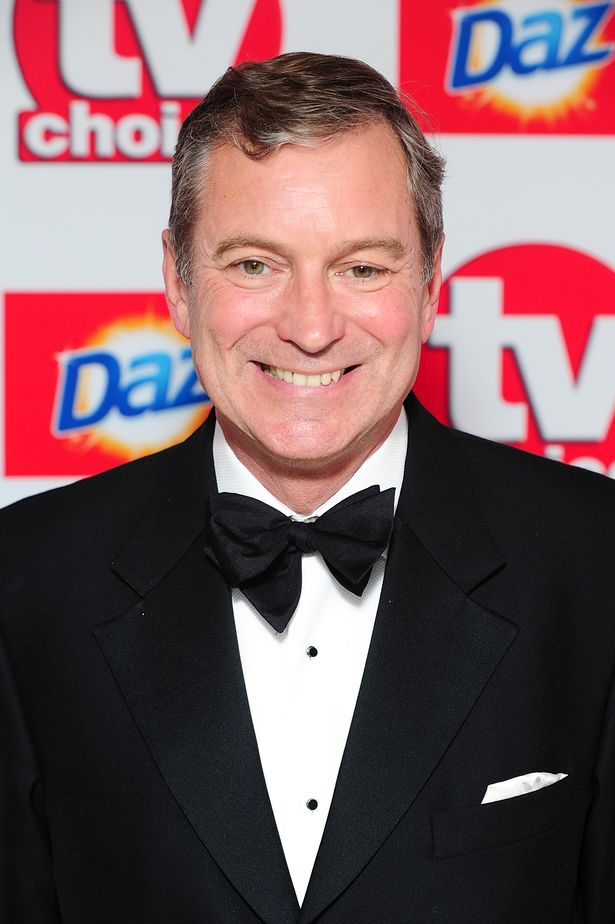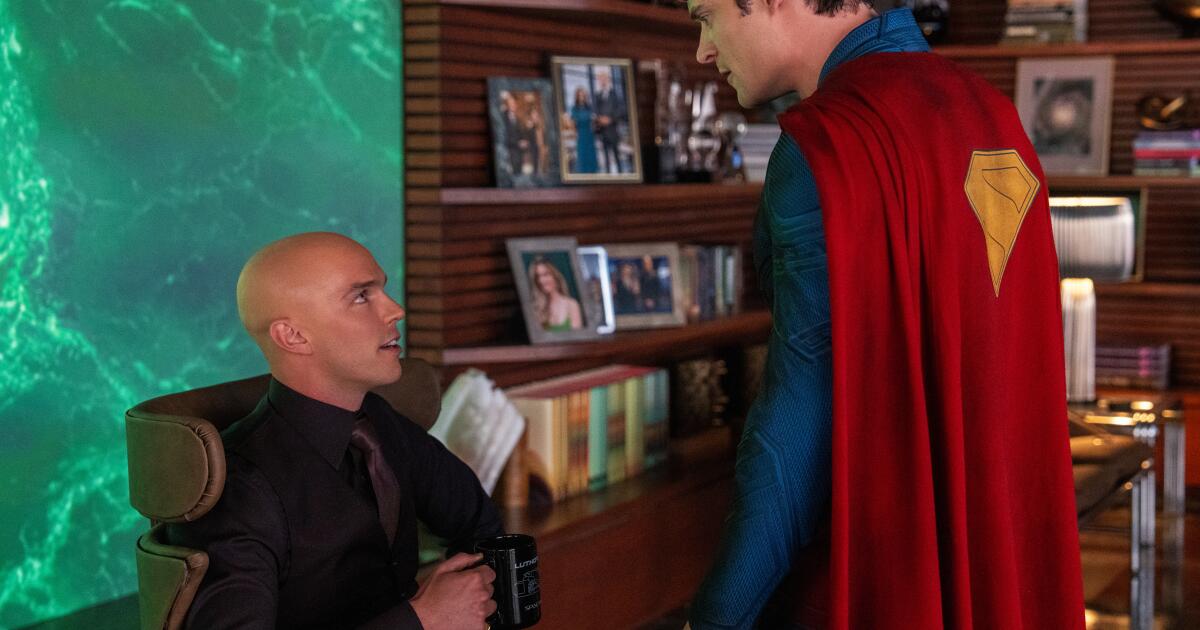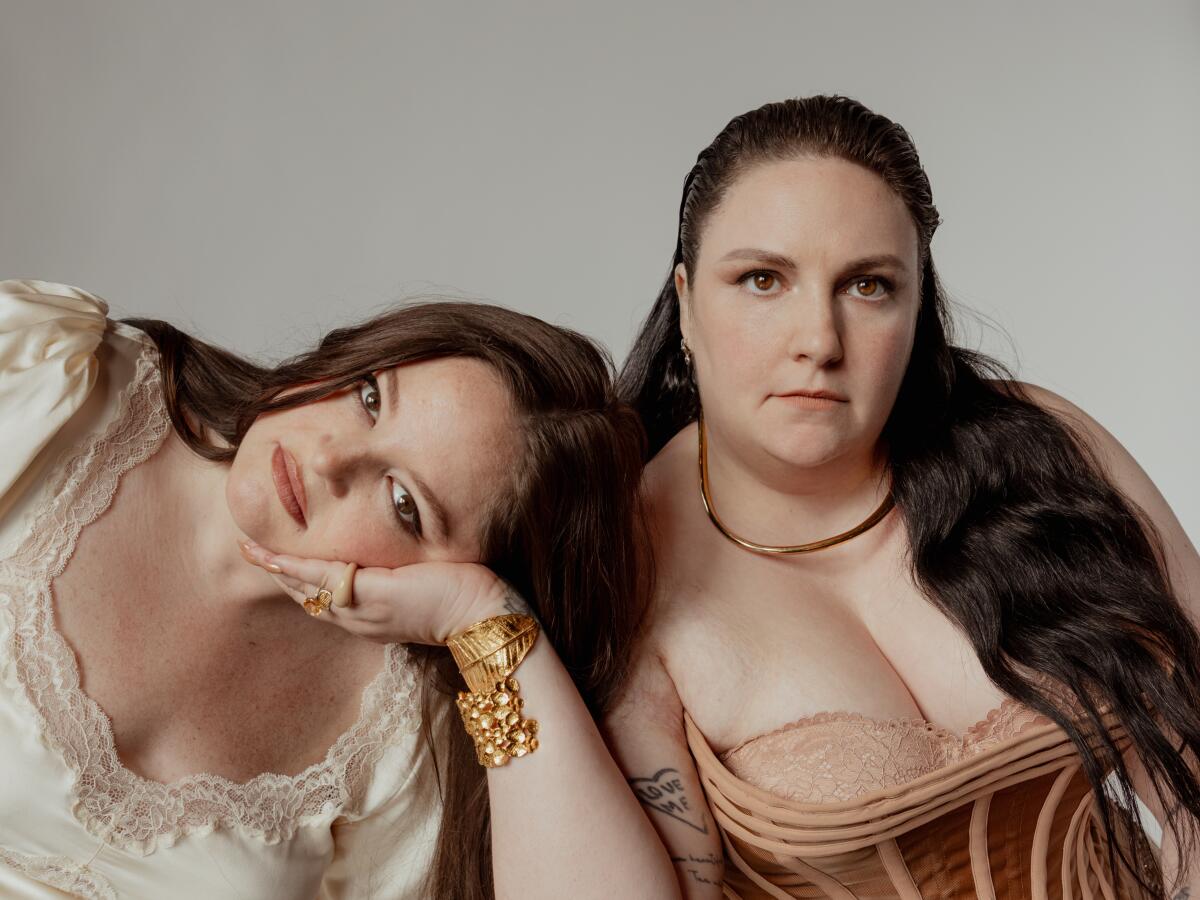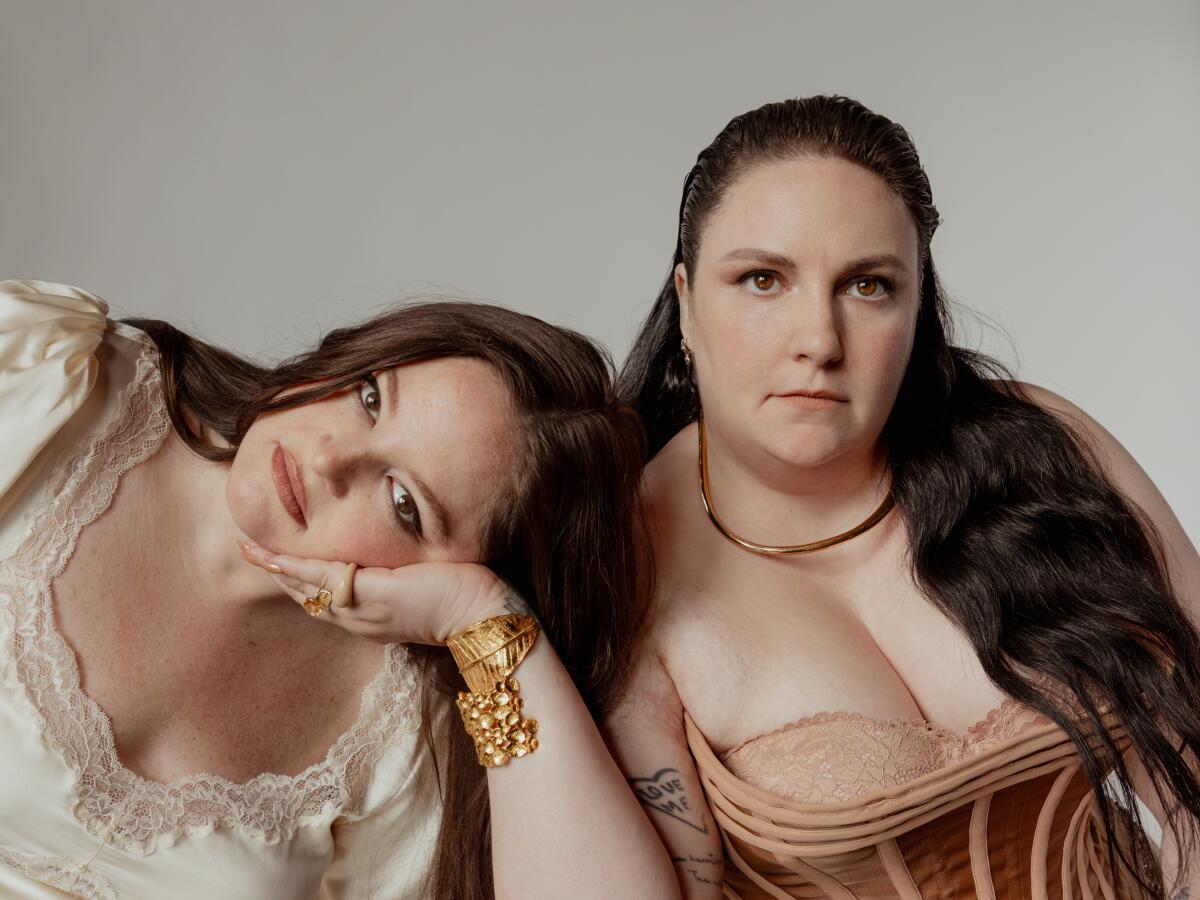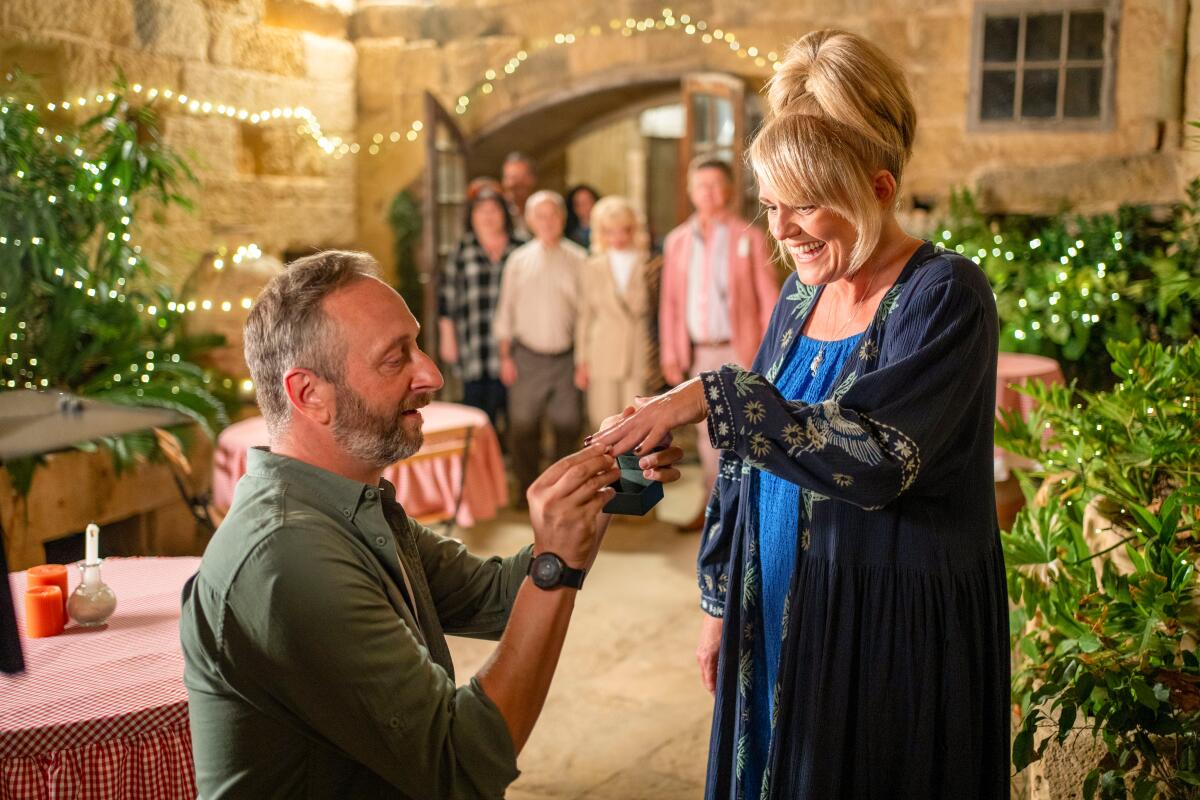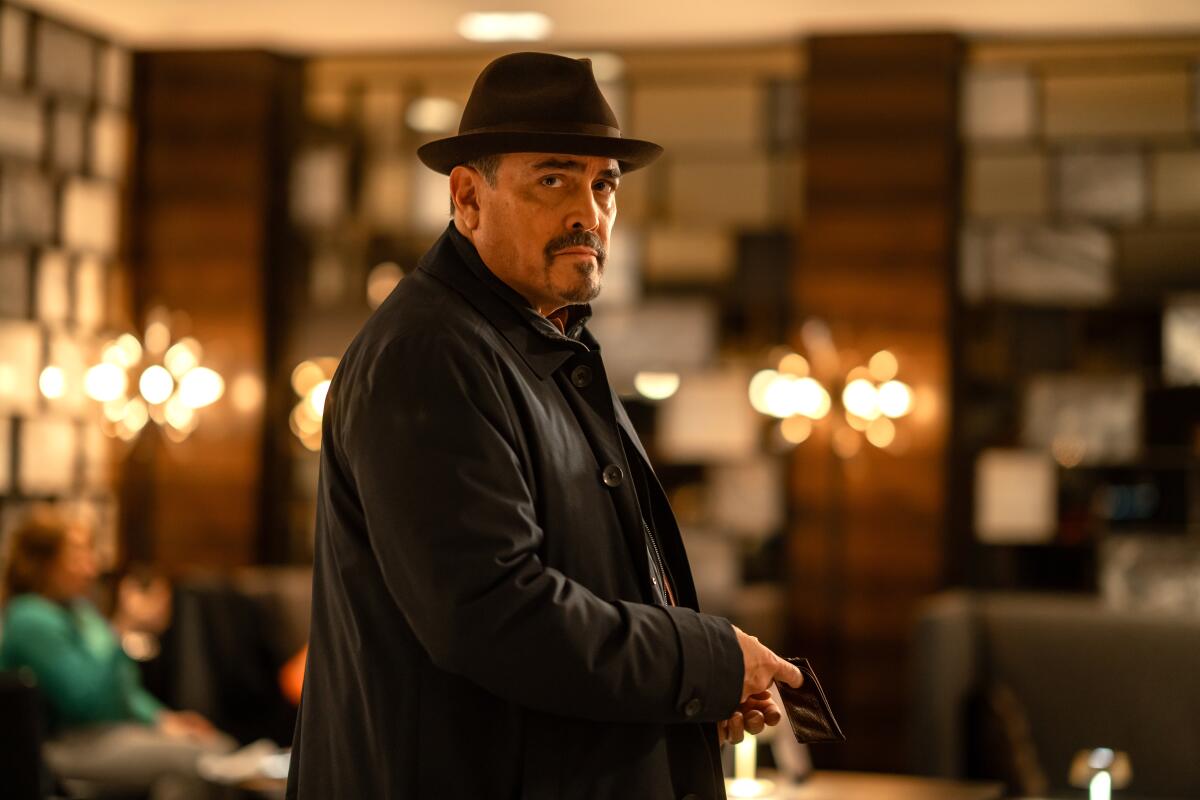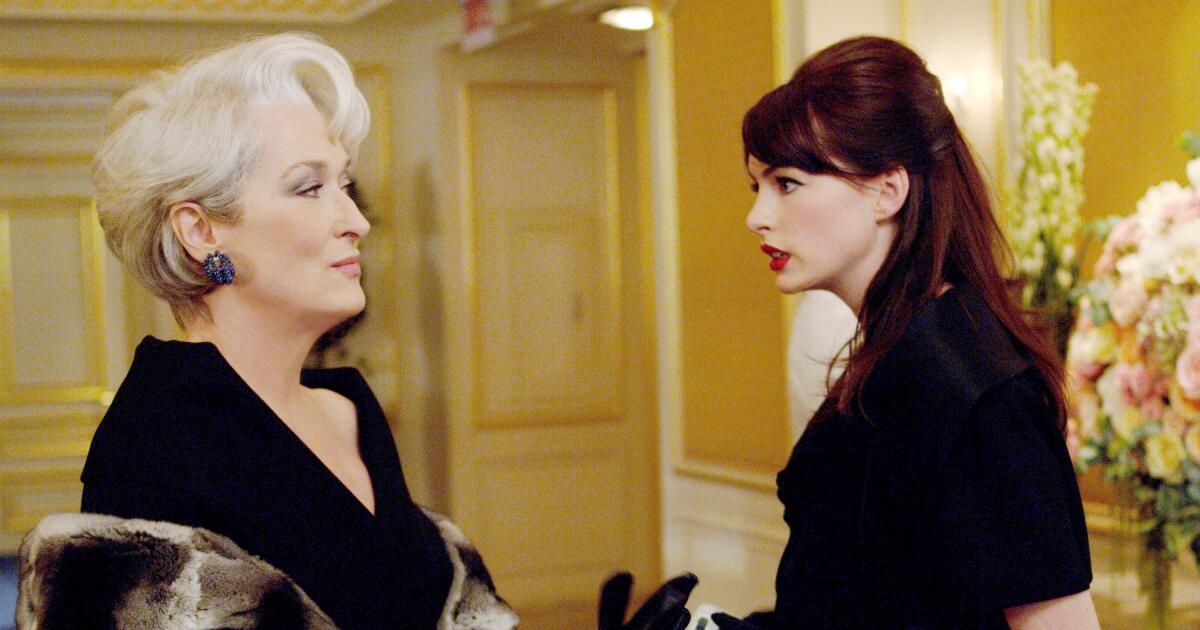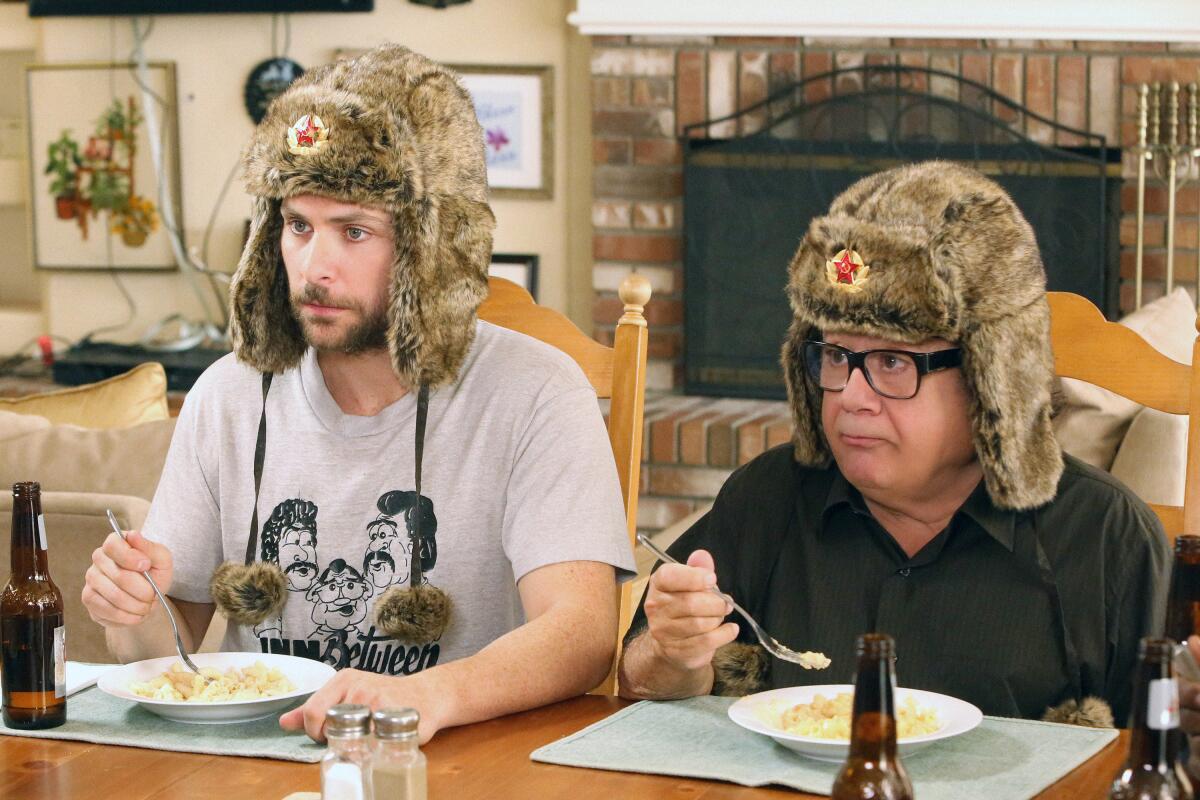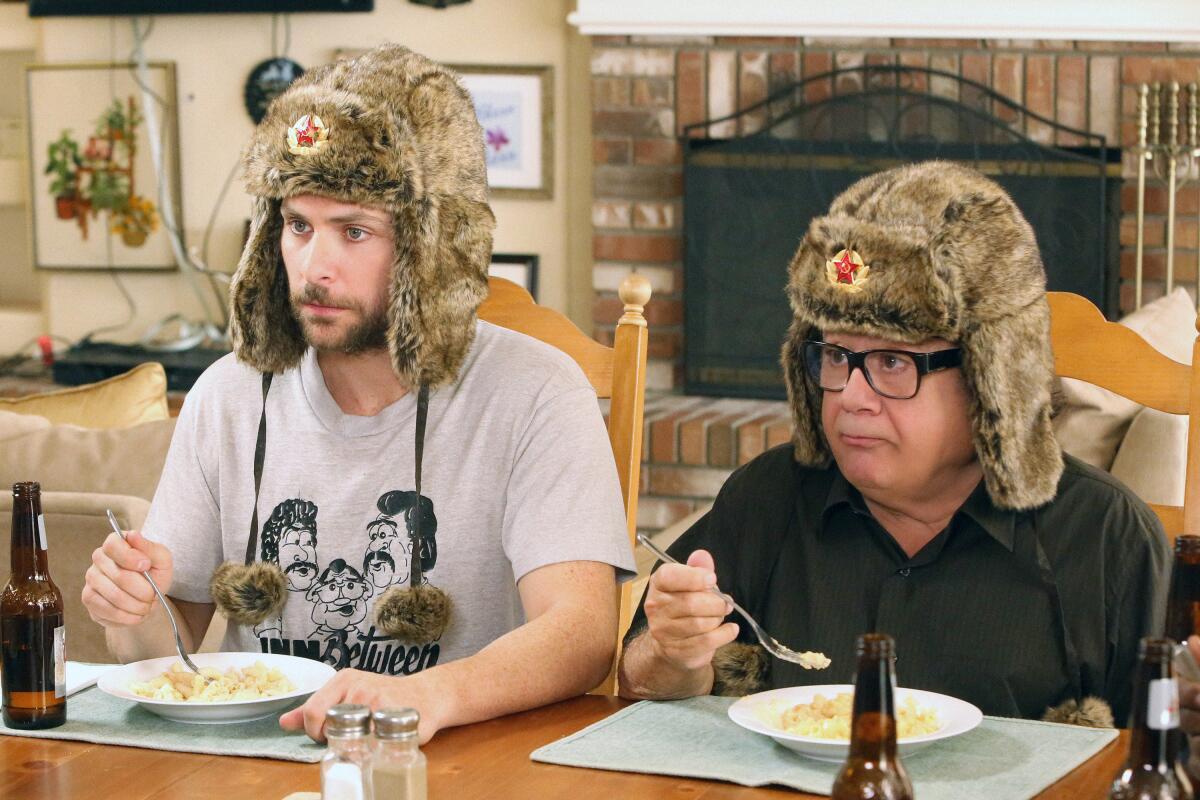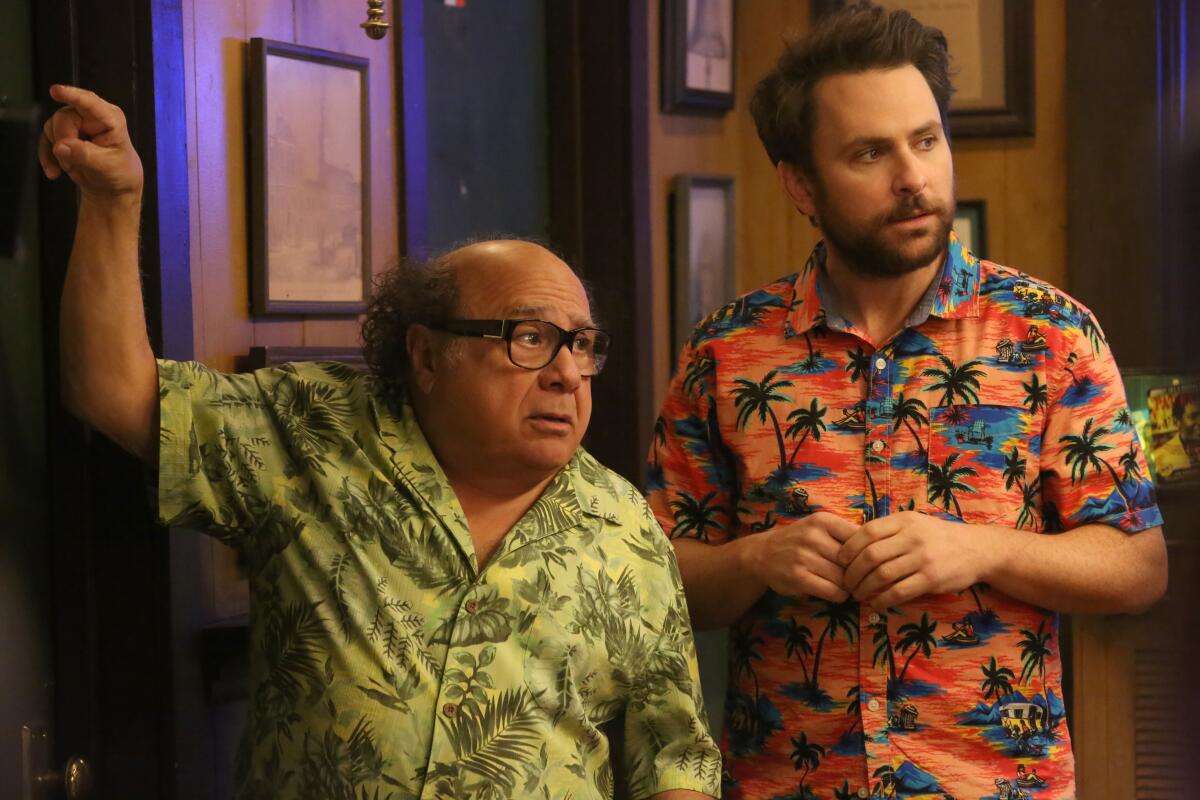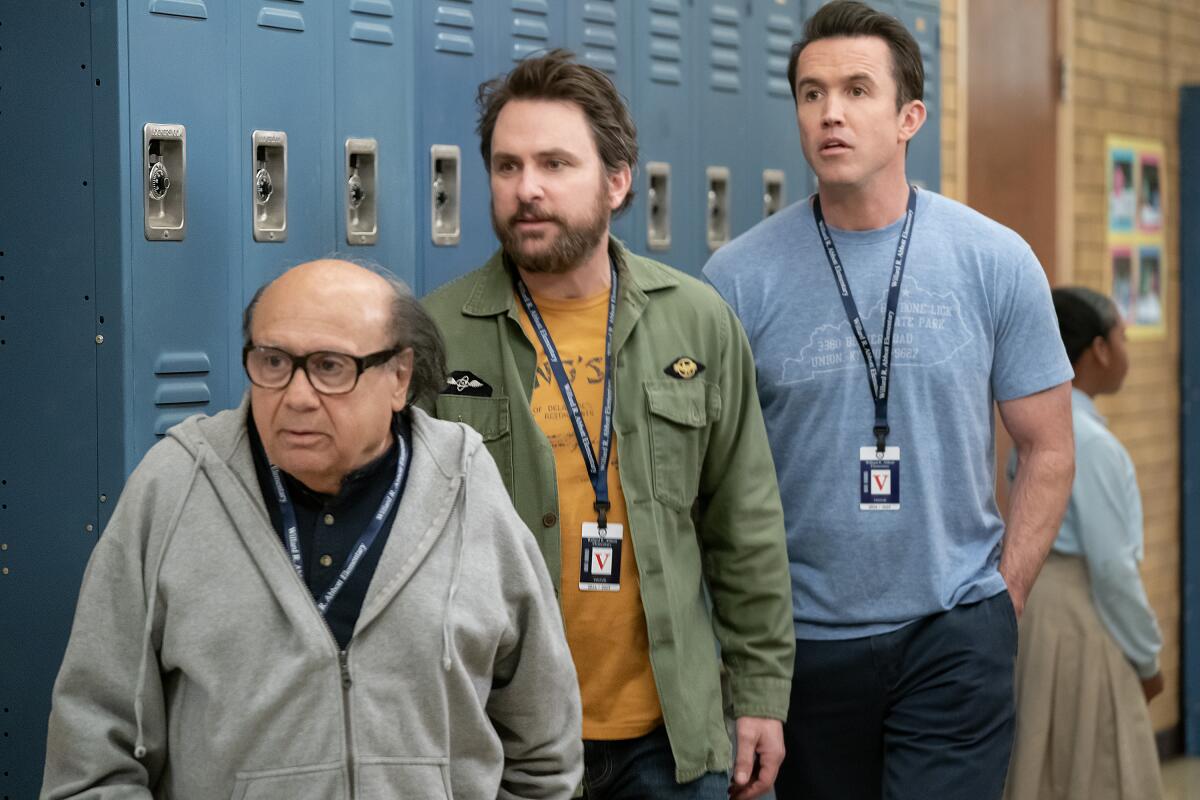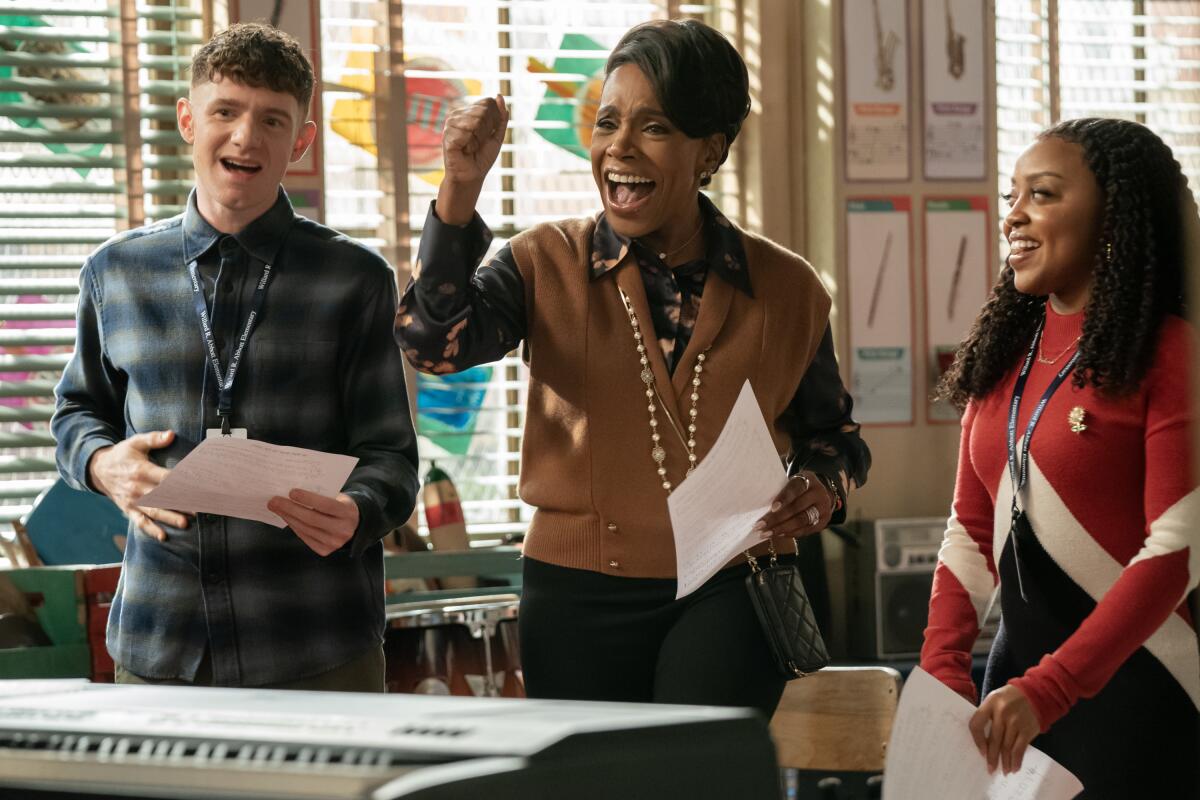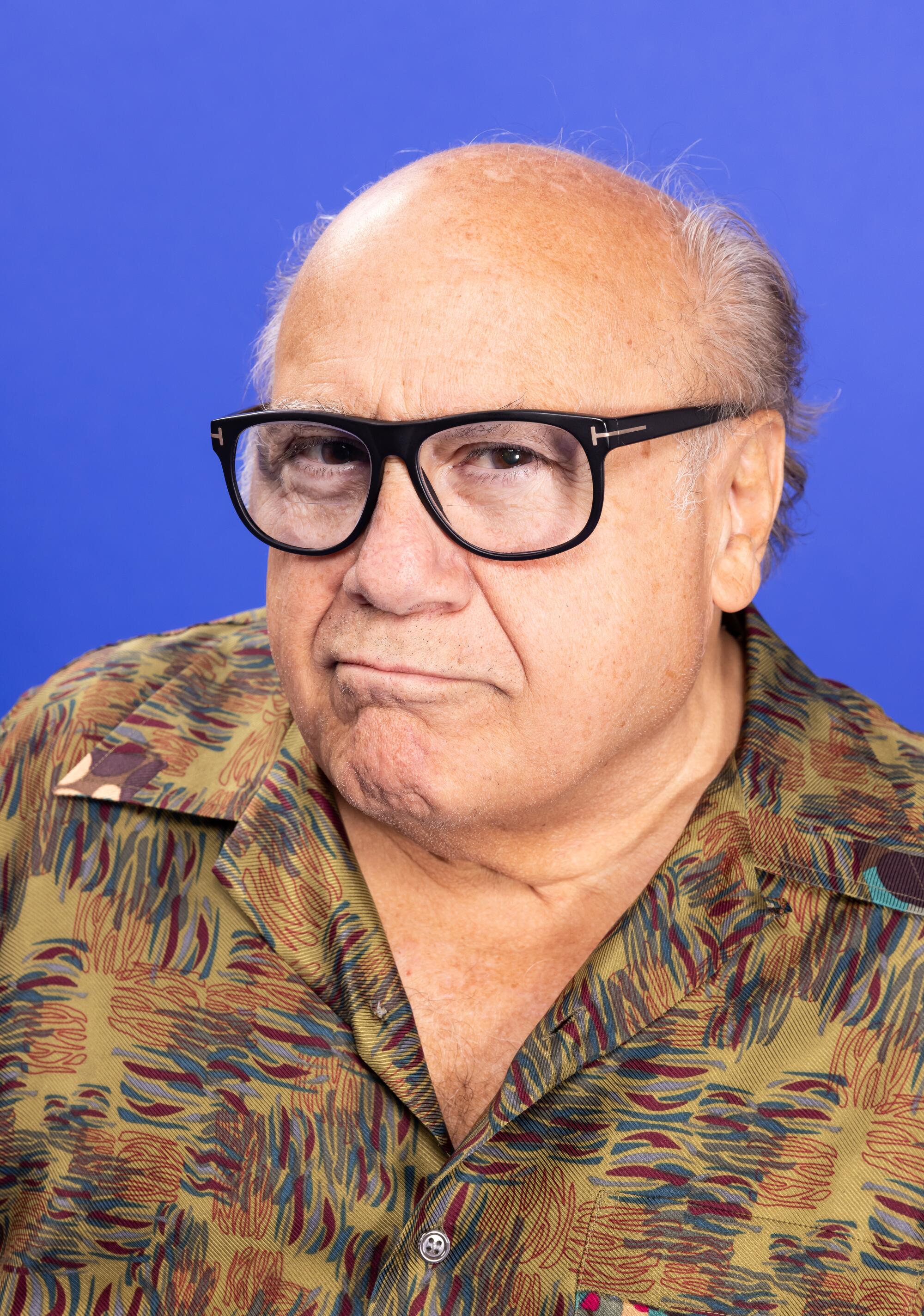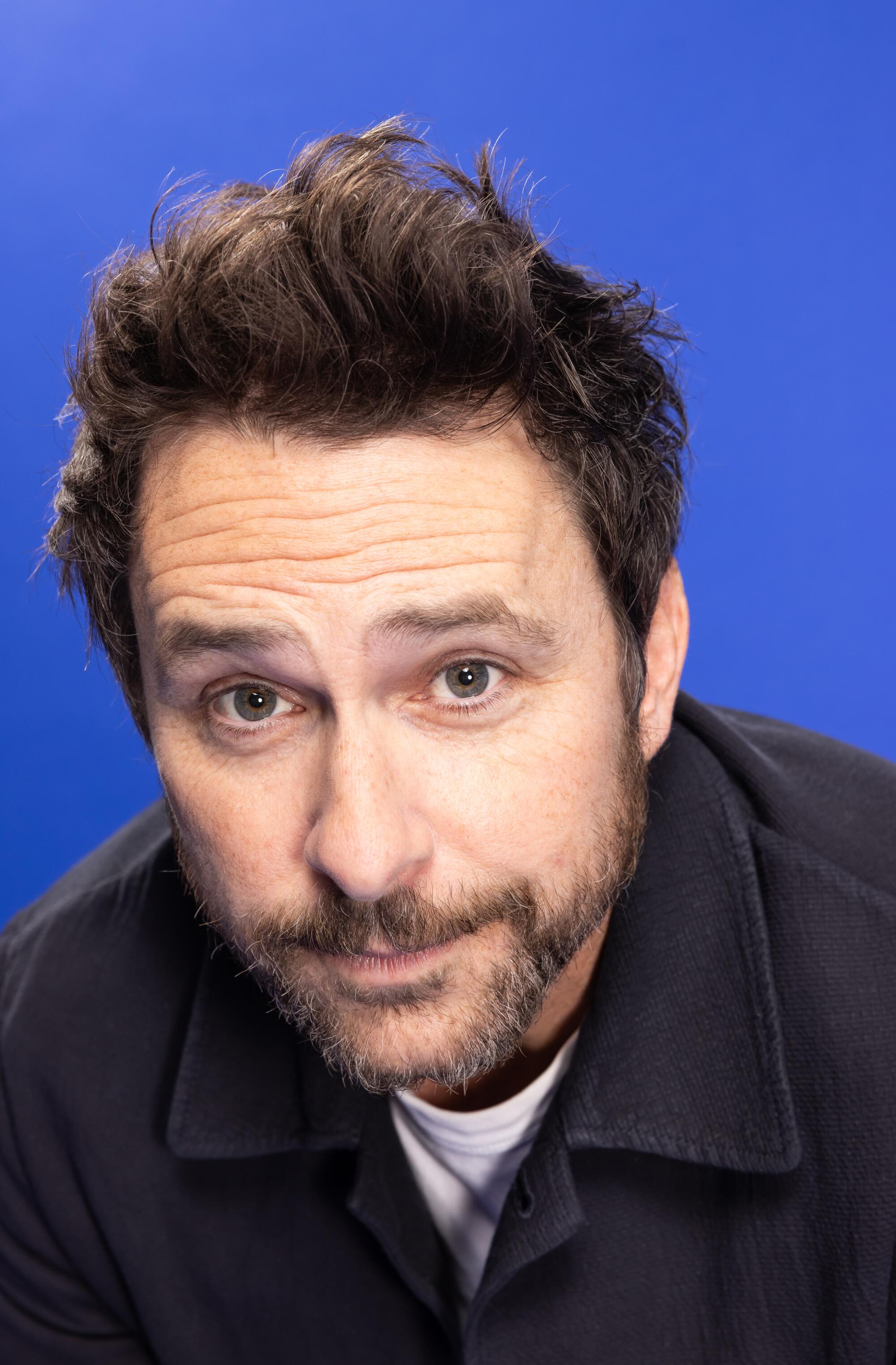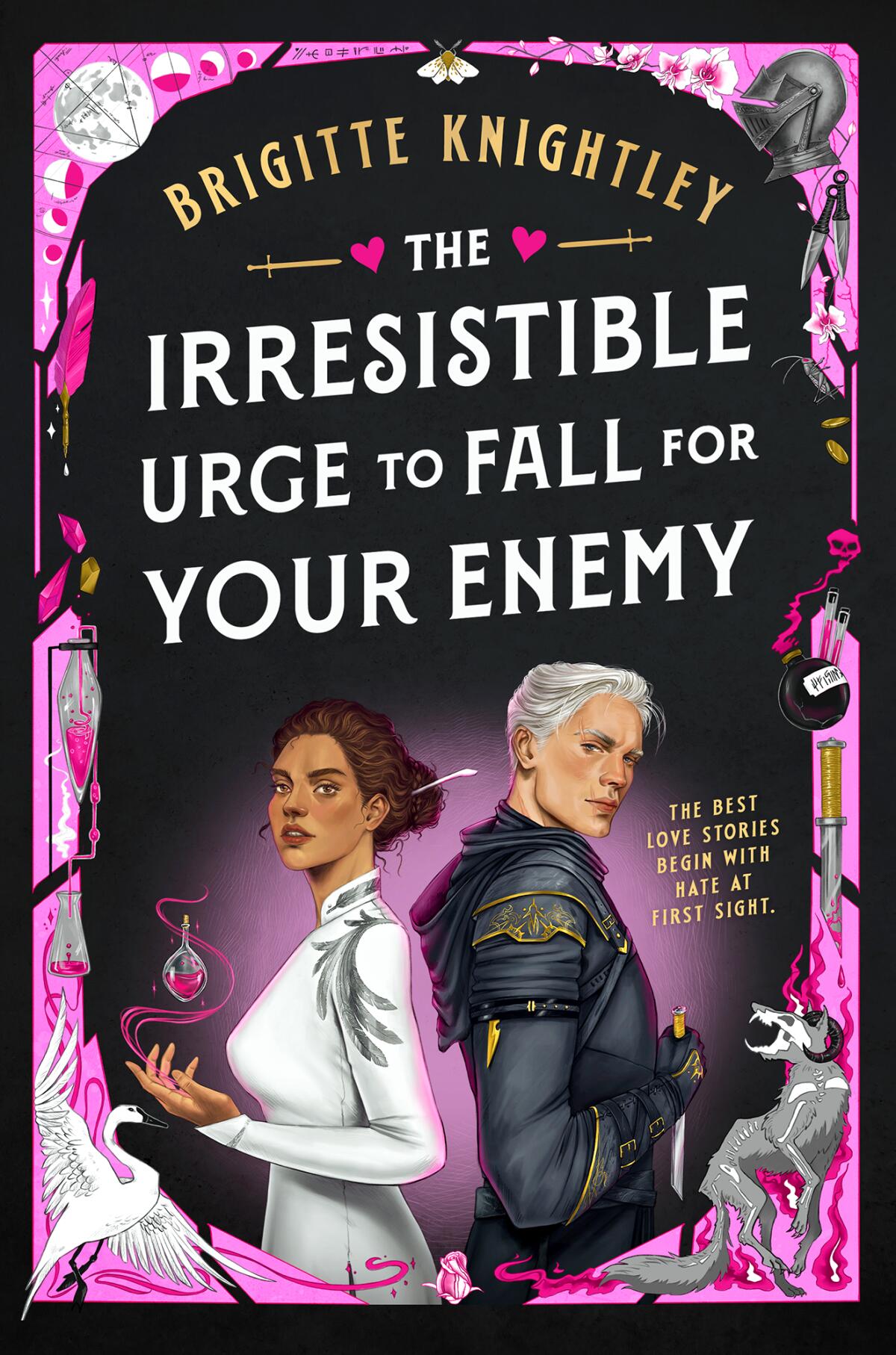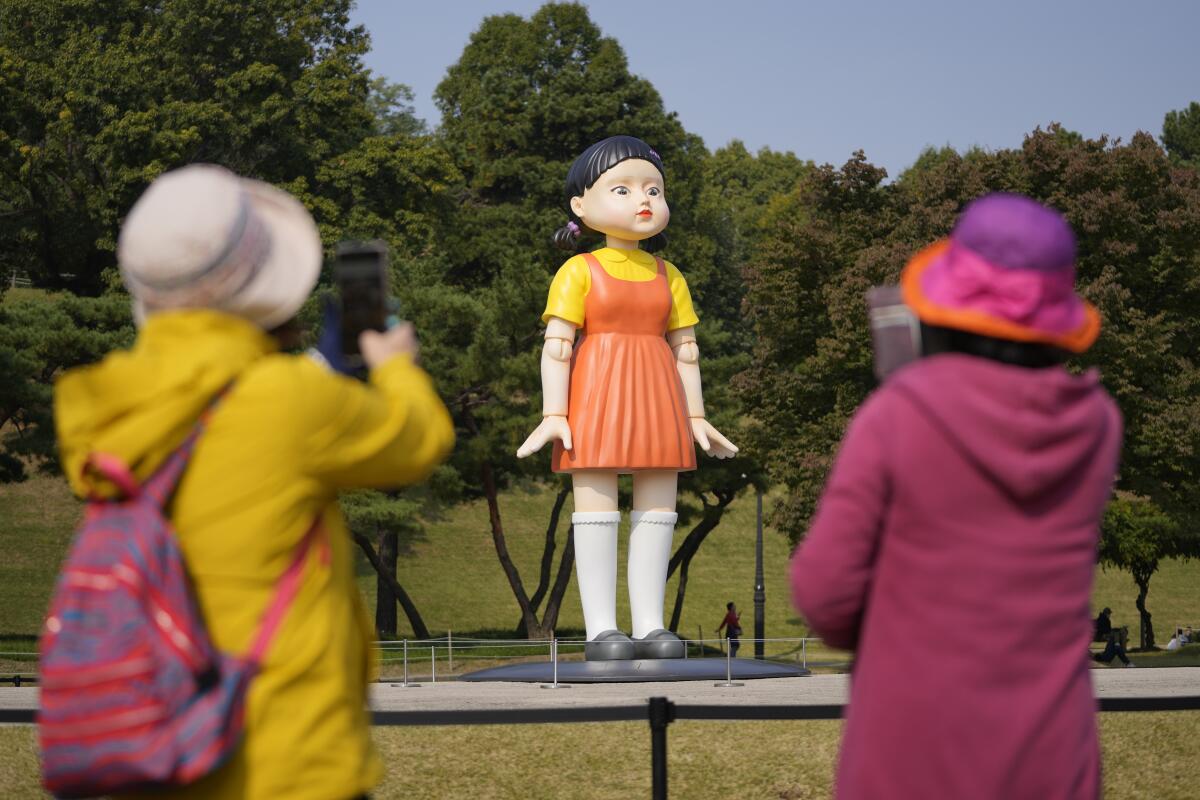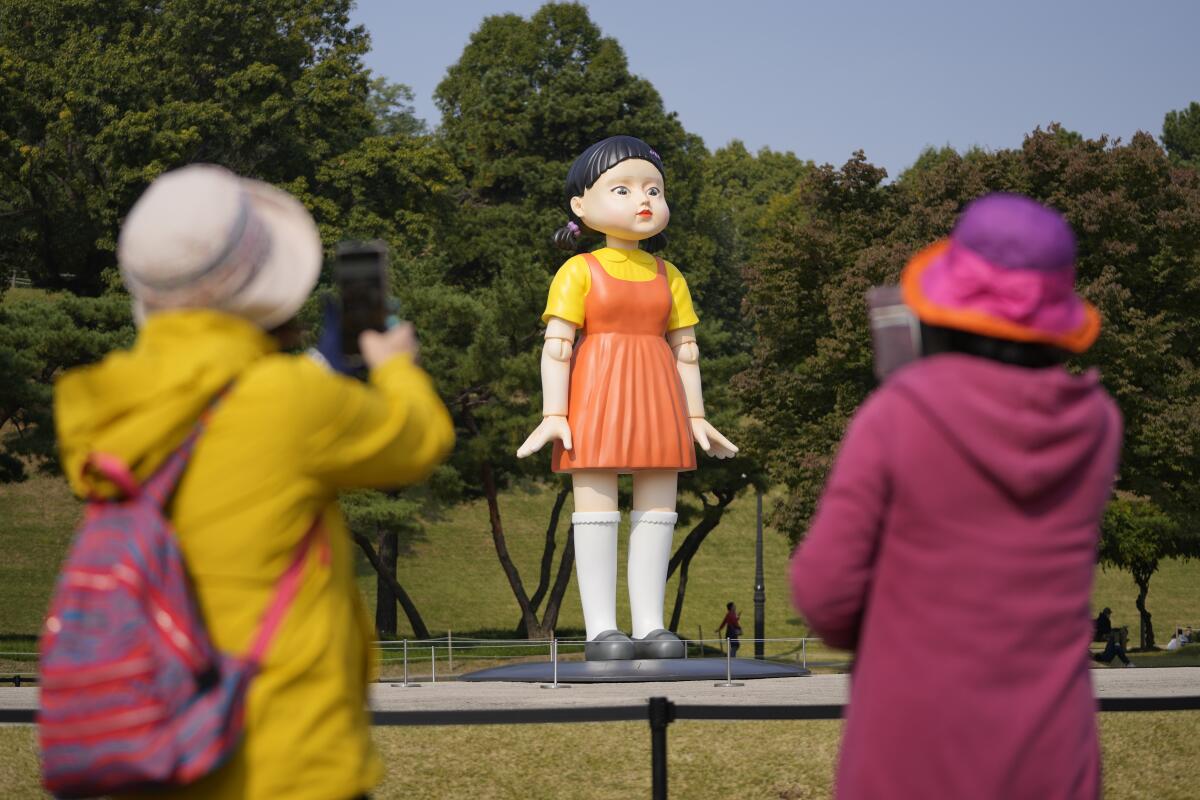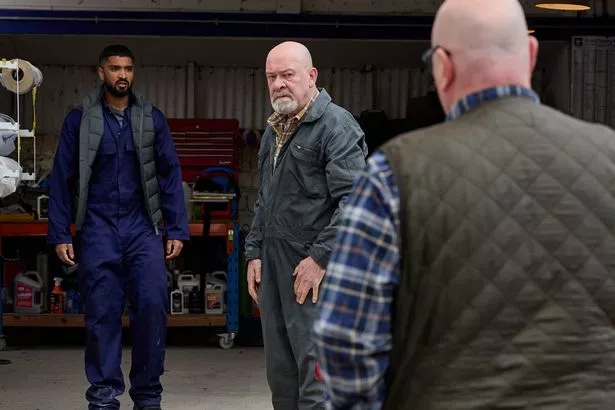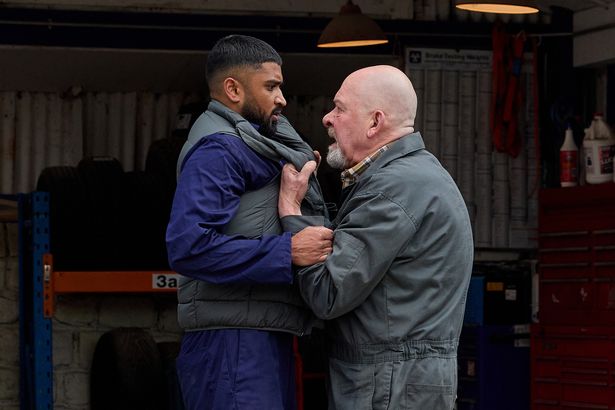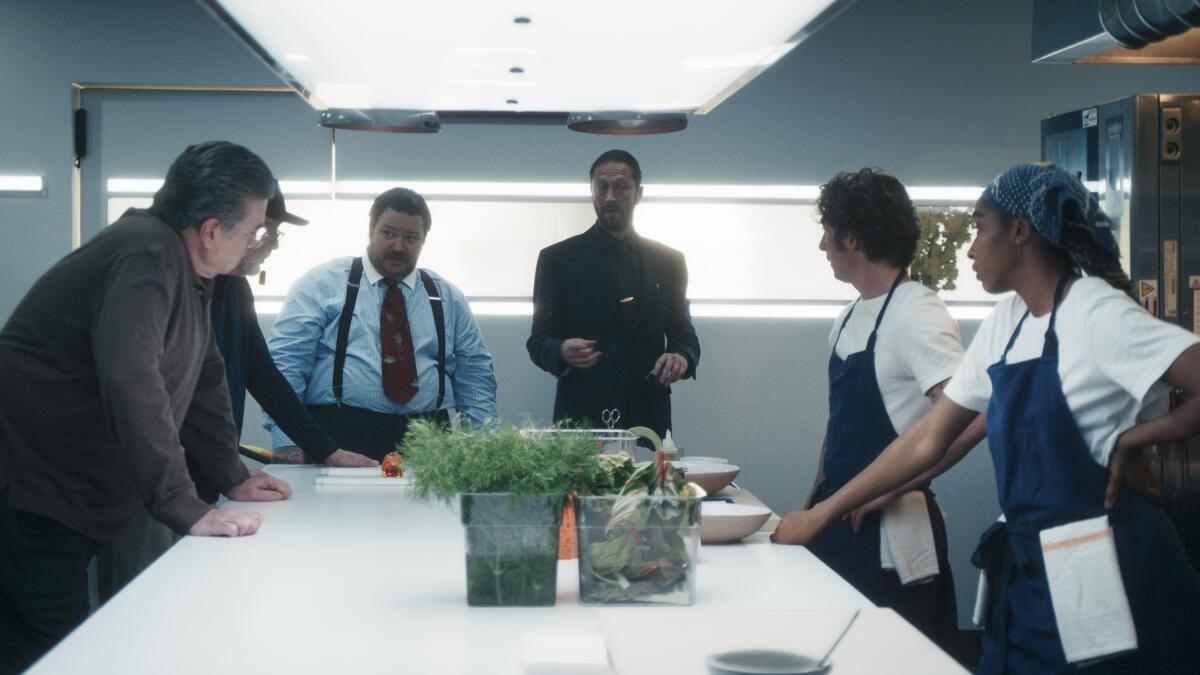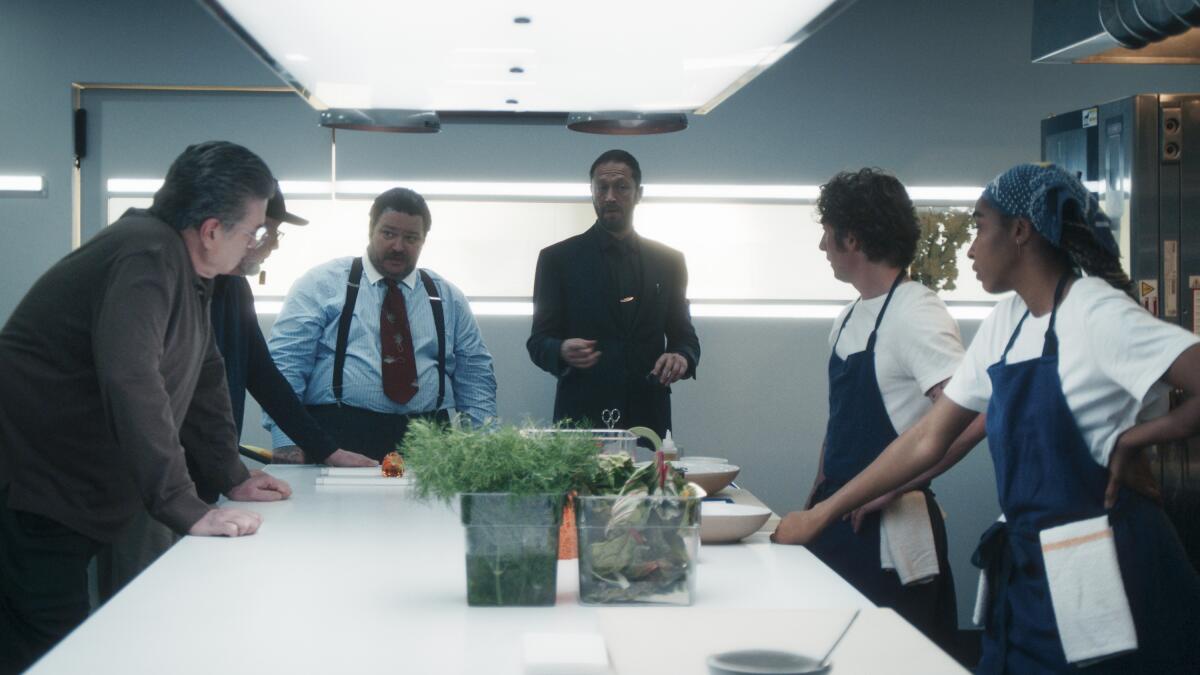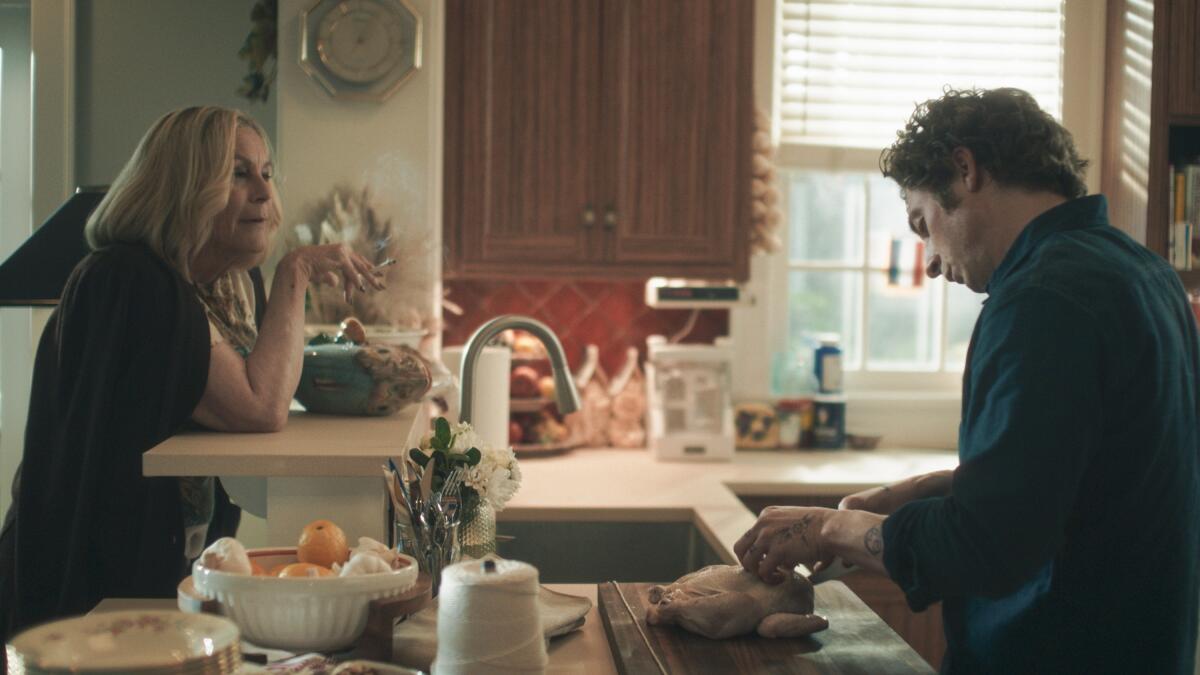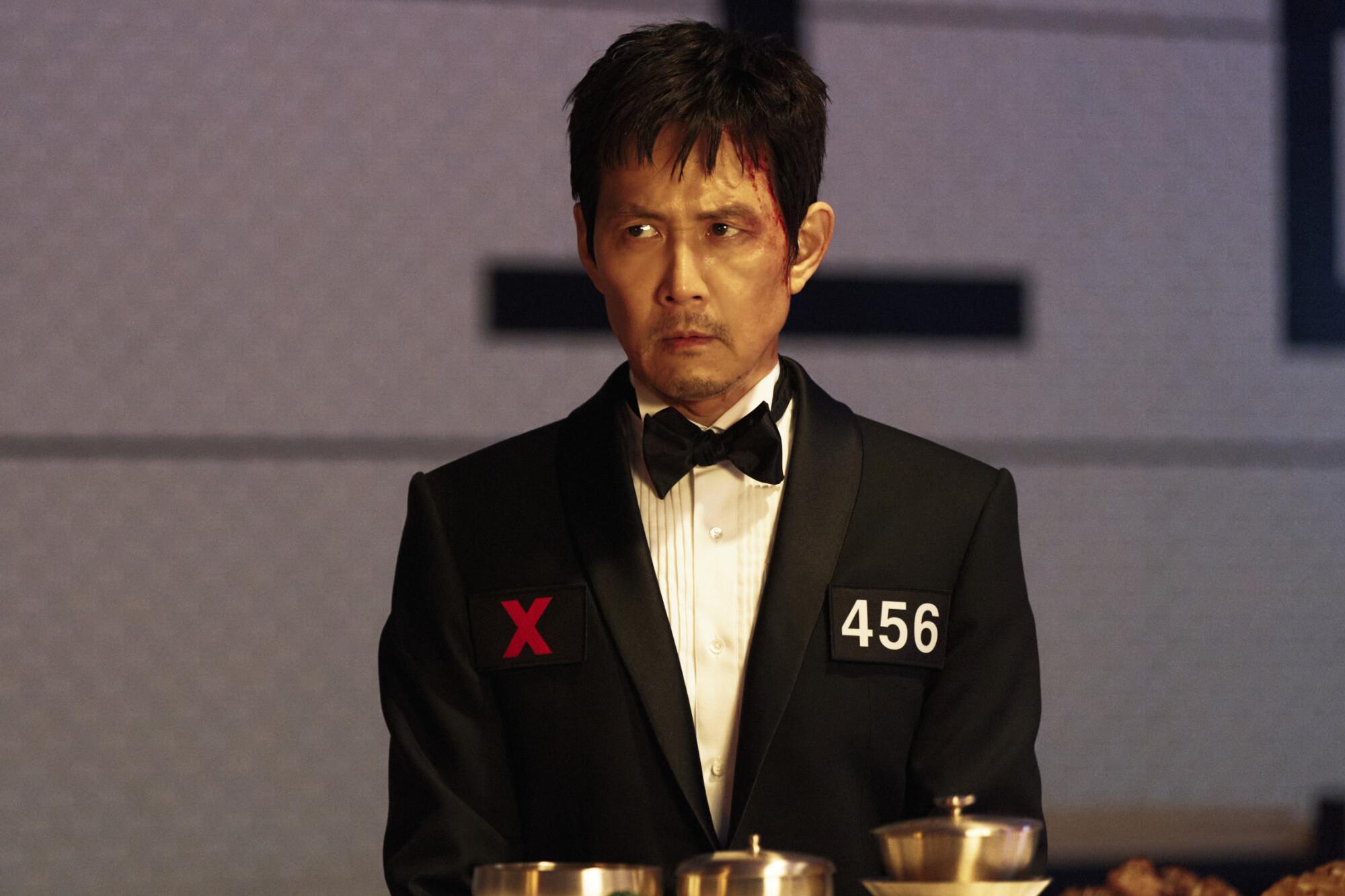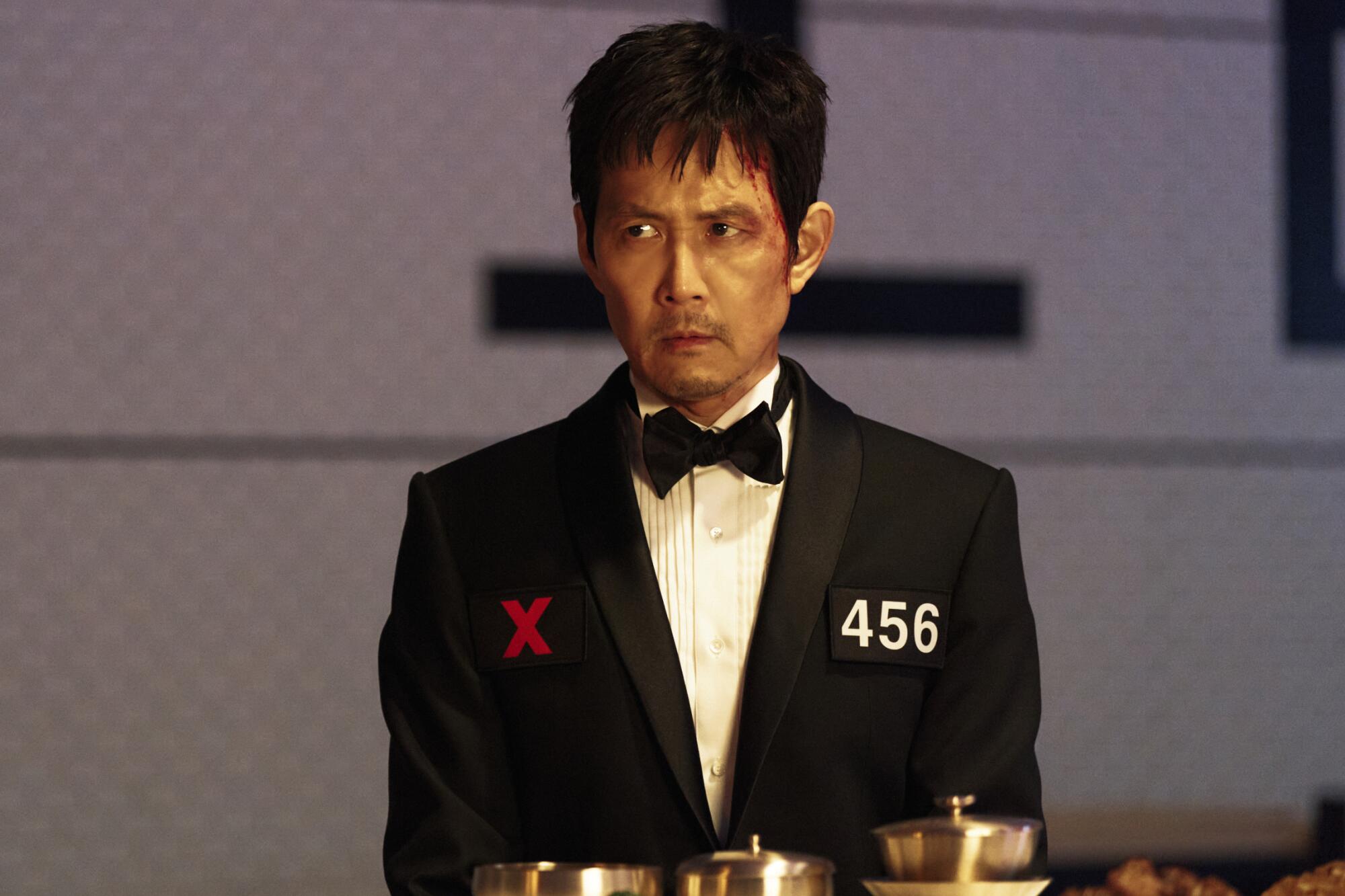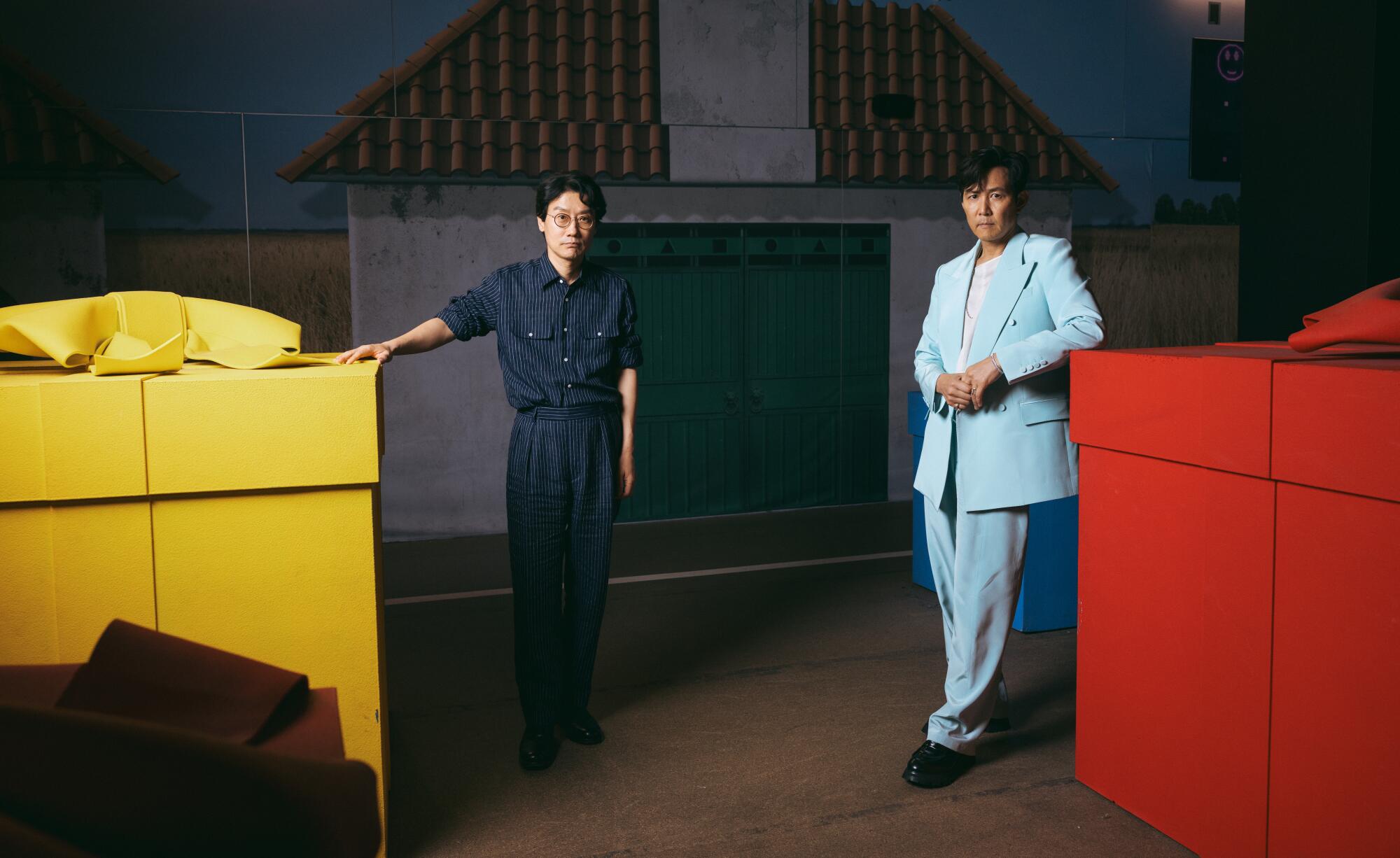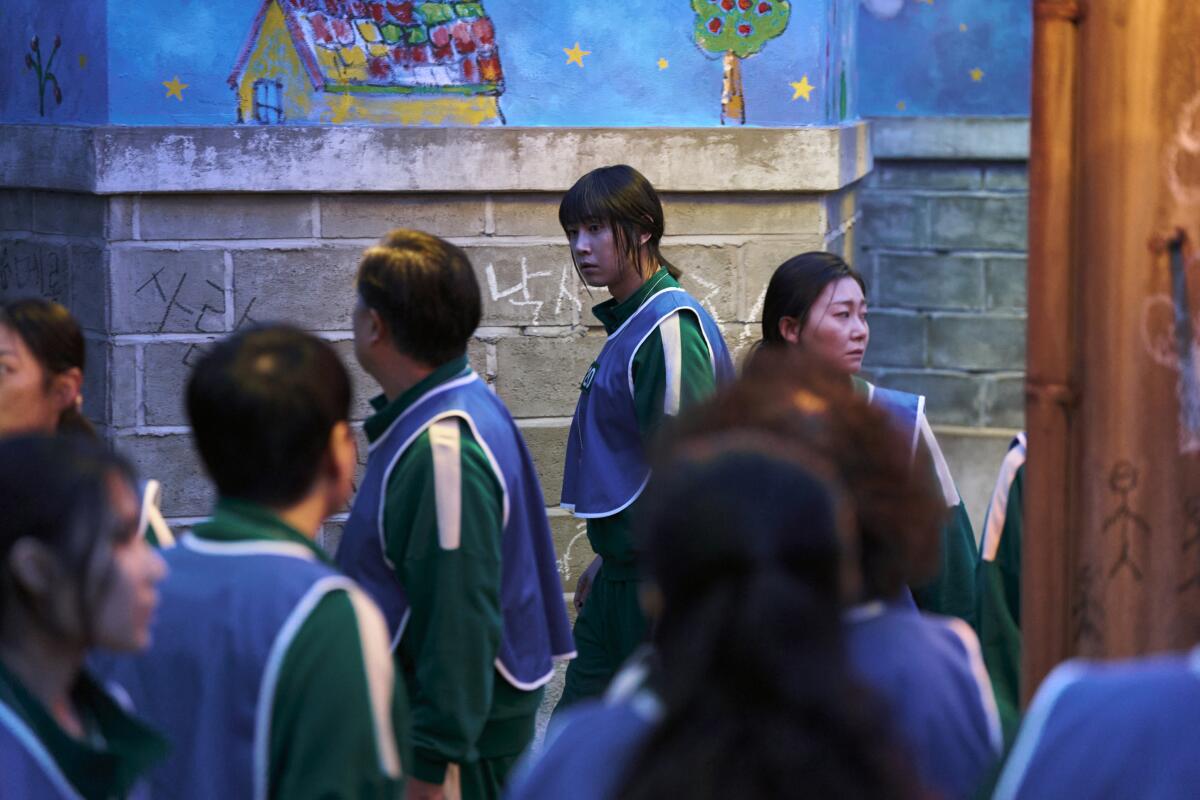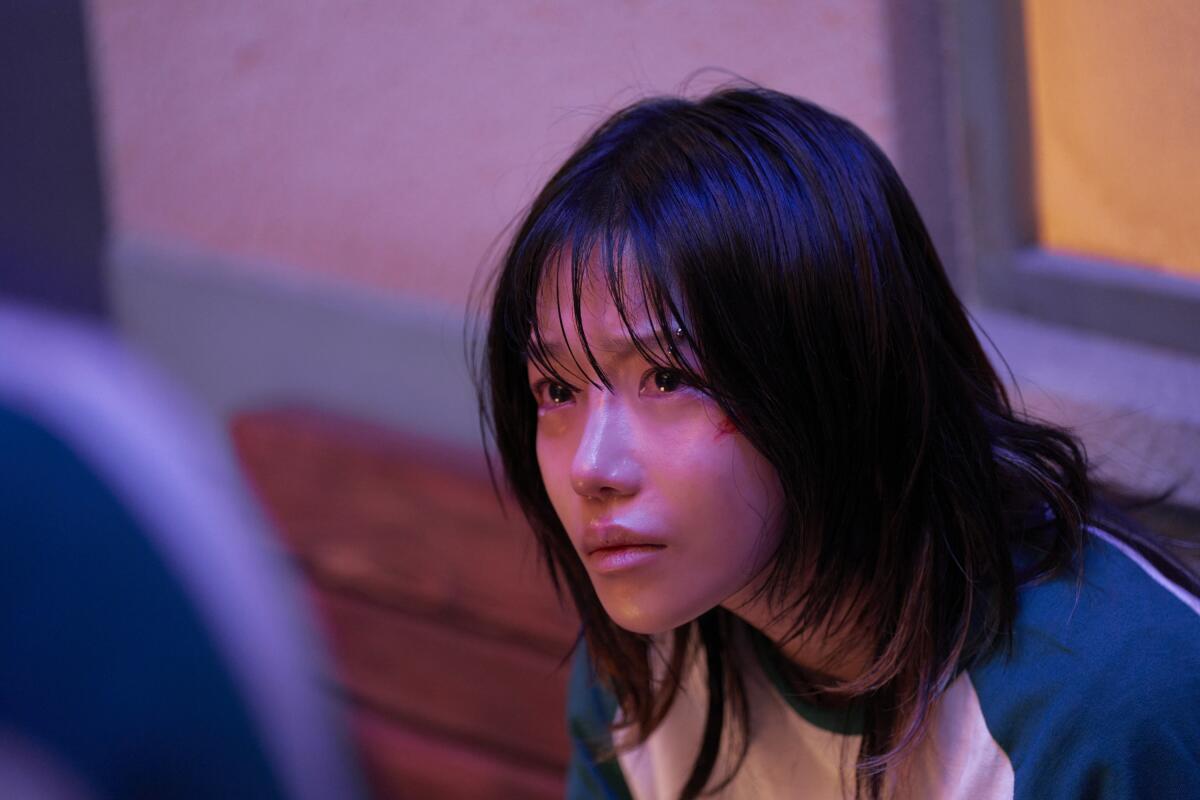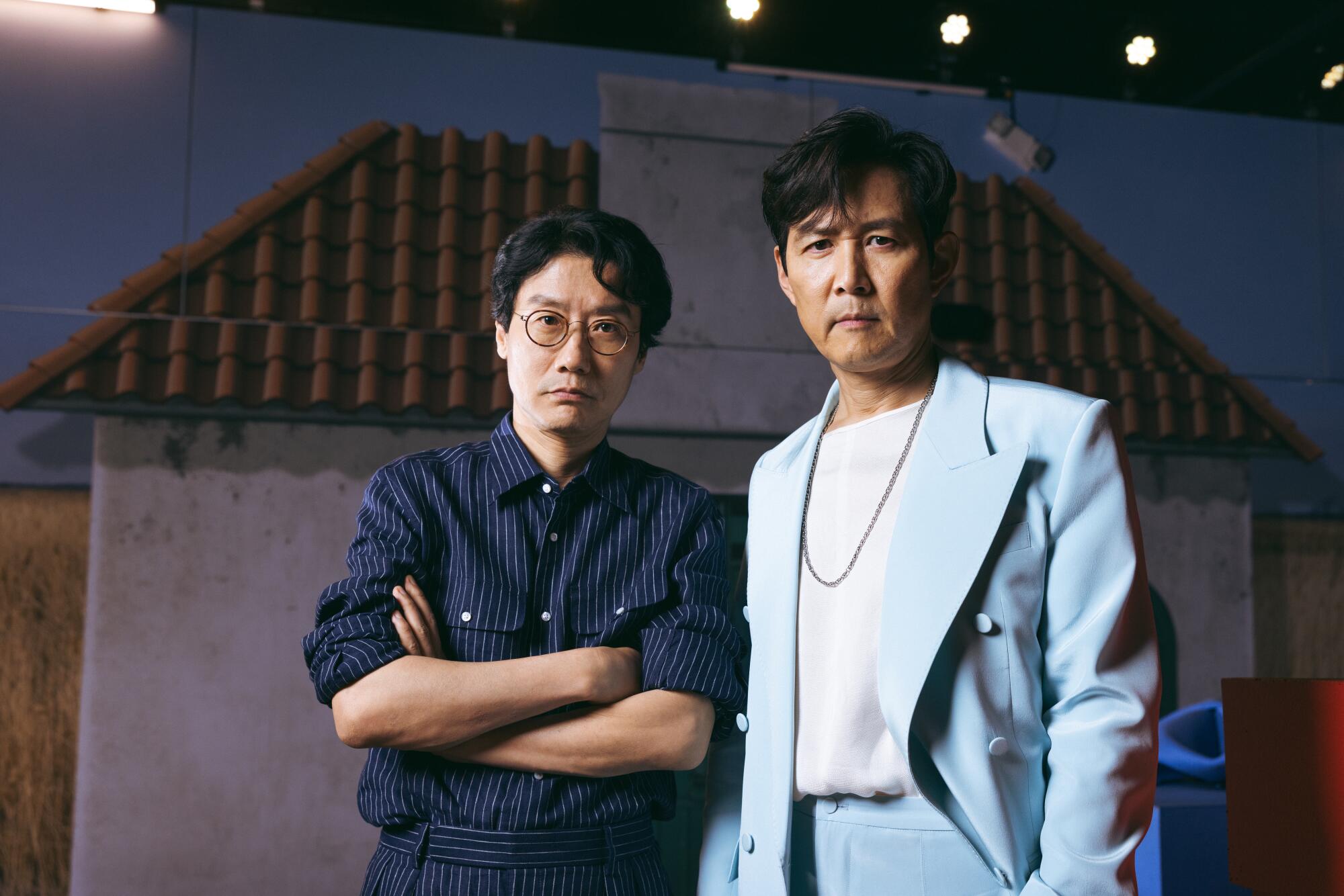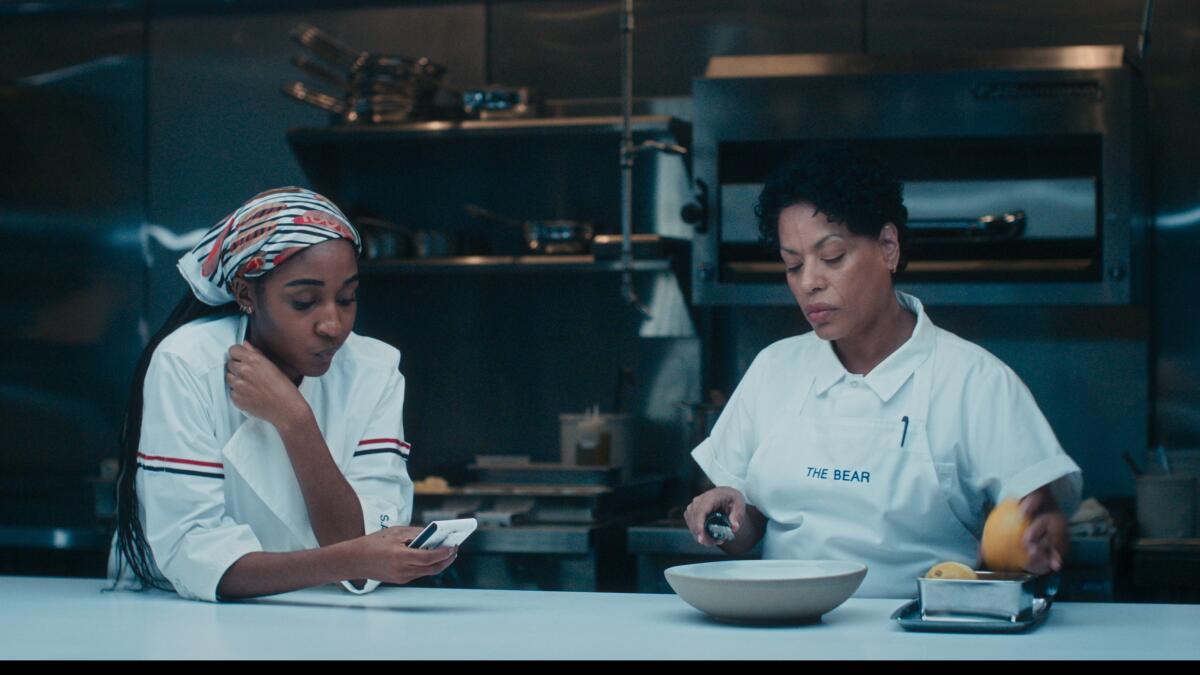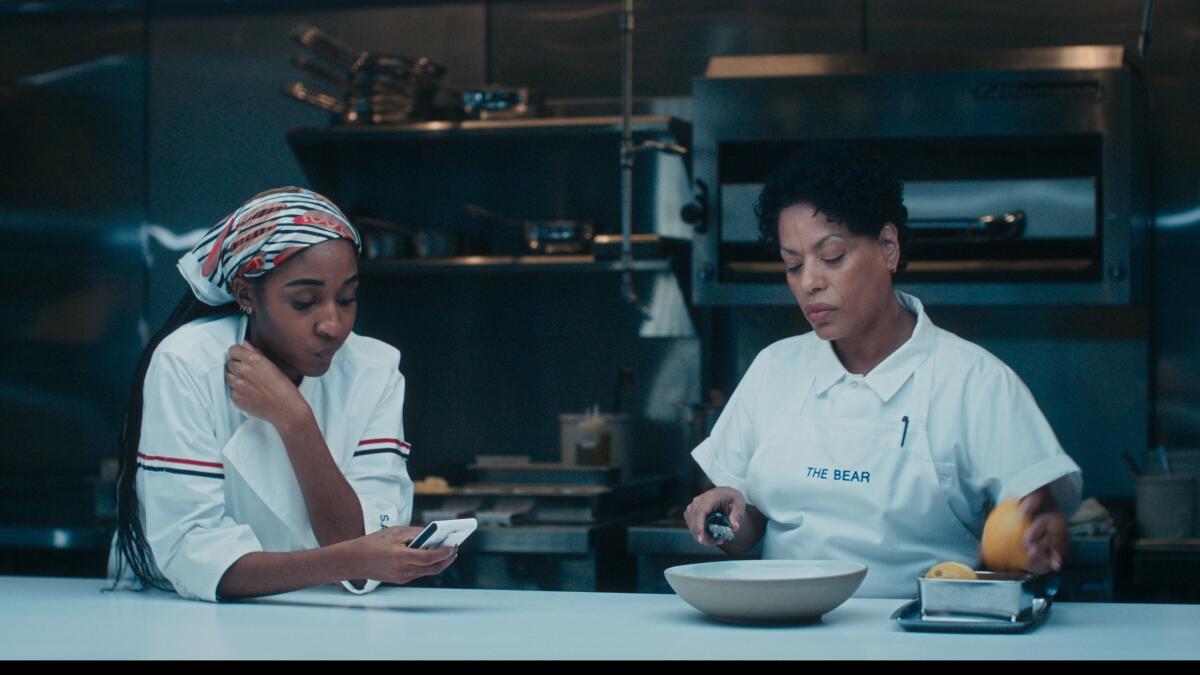Emmy nominations arrive Tuesday, and there will be plenty of time for us to argue about who should win (let’s start with “The Pitt”) and why this could be the year (though probably not) that we’ll have a surprise or two when the trophies are handed out on Sept. 14.
In the meantime, if you love “Severance,” “The White Lotus,” “The Pitt,” “The Studio,” “Hacks” and “Adolescence,” you will find plenty of reasons to smile. These are the shows that are going to steamroll through the nominations. If you belong to the “What We Do in the Shadows” cult and want a tip of the hat for its final season, you’re probably in luck. And if your comic taste embraces the absurd, and you have complicated feelings about air travel, you might be disappointed that Nathan Fielder’s “The Rehearsal” is left out of comedy series, though Fielder could earn a nod for his direction. Attaboy, Captain!
Who else will be flying high when nominations are announced? Let’s take a look.
COMEDY SERIES
“Abbott Elementary”
“The Bear”
“Hacks”
“Nobody Wants This”
“Only Murders in the Building”
“Shrinking”
“The Studio”
“What We Do in the Shadows”
Possible surprise: “The Four Seasons”
Possible “snub”: “What We Do in the Shadows”
“The Bear” won 11 Emmys last year, the most wins ever for a comedy series in a single ceremony. But that record was lost on viewers when “Hacks” won the final Emmy of the evening, besting “The Bear” for comedy series. “The Bear” has been sliding with critics, going from a 92 rating on review aggregator Metacritic for its second season to an 80 for its third and a 73 for its just-released fourth season. Sometimes I wonder if the naysayers are taking the time to consider the whole picture and the patient, deliberate way “The Bear” shows the difficulties in breaking free from addiction and familial dysfunction.
Because the show’s new seasons arrive in June, there’s some overlap between what voters are watching (the latest episodes) and what they’re supposed to be voting for (the episodes that came out a year ago). The new season was exceptional, ending in a showcase for its primary actors and providing well-earned catharsis for their characters. I don’t know if “The Bear” will win any Emmys this year, but the nominations will still be plentiful — and deserved.
COMEDY ACTRESS
Kristen Bell, “Nobody Wants This”
Quinta Brunson, “Abbott Elementary”
Ayo Edebiri, “The Bear”
Natasha Lyonne, “Poker Face”
Jean Smart, “Hacks”
Possible surprise: Selena Gomez, “Only Murders in the Building”
Possible “snub”: Lyonne
As always, it’s an honor to be nominated. And in a category that includes Smart, a nomination will be as far as it goes for the four women joining her. Edebiri and Brunson are sure bets to return. Bell has never been nominated, though she was a delight on “The Good Place.” She should break through for “Nobody Wants This,” the most easily binged contender this Emmy season. But voters could go any number of ways here, opting for past Emmy favorites like Tina Fey (“The Four Seasons”), Kathryn Hahn (“Agatha All Along”) or Uzo Aduba (“The Residence”). Or they could re-up Gomez, who received her first acting nomination last year, or Lyonne, recognized two years ago for the first season of “Poker Face.”
COMEDY ACTOR
Adam Brody, “Nobody Wants This”
Seth Rogen, “The Studio”
Jason Segel, “Shrinking”
Martin Short, “Only Murders in the Building”
Jeremy Allen White, “The Bear”
Possible surprise: Steve Martin, “Only Murders in the Building”
Possible “snub”: Segel
As with comedy actress, this category has one less nominee slot this year, which could be bad news for veterans Martin and Ted Danson (“A Man on the Inside”). If Bell earns a nomination for lead actress, how could you leave out Brody? And if you laud Short, how do you neglect Martin? (That happened two years ago, when the field was five.) But if Emmy voters were paying attention — and that is, admittedly, a big if — they’d remember that it’s Martin who carried the emotional weight of the past season of “Only Murders,” his character grieving the guilt from the loss of his longtime stunt double and friend (played by Jane Lynch).
COMEDY SUPPORTING ACTRESS
Liza Colón-Zayas, “The Bear”
Hannah Einbinder, “Hacks”
Kathryn Hahn, “The Studio”
Janelle James, “Abbott Elementary”
Catherine O’Hara, “The Studio”
Sheryl Lee Ralph, “Abbott Elementary”
Jessica Williams, “Shrinking”
Possible surprise: Megan Stalter, “Hacks”
Possible “snub”: Hahn
There’s more room in the supporting categories, which sport seven spots. That should be good news for Hahn, consistently the most delightful actor working in television today. She could well be a double nominee for her profane, force-of-nature marketing exec on “The Studio” and for her lead turn in the Marvel spinoff “Agatha All Along.” She could also somehow be shut out completely. (Let’s not go there.)
COMEDY SUPPORTING ACTOR
Ike Barinholtz, “The Studio”
Paul Downs, “Hacks”
Harrison Ford, “Shrinking”
Ebon Moss-Bachrach, “The Bear”
Tyler James Williams, “Abbott Elementary”
Michael Urie, “Shrinking”
Bowen Yang, “Saturday Night Live”
Possible surprise: Colman Domingo, “The Four Seasons”
Possible ”snub”: Urie
“The Four Seasons” was a bit of a snooze, but I was nudged awake every time Domingo came onscreen. Will older voters have a soft spot for this featherweight Gen X friends drama, or were they just watching to take notes on places to visit in upstate New York? Netflix campaigners excel at vacuuming up nominations, so it wouldn’t be surprising if “The Four Seasons” outperforms expectations.
DRAMA SERIES
“Andor”
“The Diplomat”
“The Last of Us”
“Paradise”
“The Pitt”
“Severance”
“Slow Horses”
“The White Lotus”
Possible surprise: “Squid Game”
Possible “snub”: “Paradise”
The first season of “Andor” earned 8 nominations and it could well surpass that for its second and final go-round, one that leaned into a pointed critique of authoritarianism, showing how easily a democracy can erode into fascism. The category’s last spot is a toss-up between the disappointing second season of “Squid Game,” which felt bloated even at just seven episodes, and “Paradise,” another dystopian drama, but a lot more fun, even with all the overwrought ’80s covers.
DRAMA ACTRESS
Kathy Bates, “Matlock”
Britt Lower, “Severance”
Elisabeth Moss, “The Handmaid’s Tale”
Bella Ramsey, “The Last of Us”
Keri Russell, “The Diplomat”
No “snubs.” No surprises. These are the nominees. And jumping ahead, to answer your question: Yes, Kathy Bates has won an Emmy — two, in fact. If you saw her on “American Horror Story: Coven” somehow making a serial killer and slave abuser almost sympathetic, you know that particular Emmy was earned. And I’m not sure if she had more than two minutes of running time for the guest turn on “Two and a Half Men,” for which she won her first Emmy, but watching her spot-on imitation of Charlie Sheen as the ghost of Charlie Harper, I can’t argue with the choice.
DRAMA ACTOR
Sterling K. Brown, “Paradise”
Gary Oldman, “Slow Horses”
Pedro Pascal, “The Last of Us”
Adam Scott, “Severance”
Noah Wyle, “The Pitt”
Again, no “snubs.” No surprises. Unless the nerds in the actors branch go all in for Diego Luna in “Andor.”
DRAMA SUPPORTING ACTRESS
Carrie Coon, “The White Lotus”
Taylor Dearden, “The Pitt”
Allison Janney, “The Diplomat”
Katherine LaNasa, “The Pitt”
Parker Posey, “The White Lotus”
Natasha Rothwell, “The White Lotus”
Aimee Lou Wood, “The White Lotus”
Possible surprise: Leslie Bibb, “The White Lotus”
Possible “snub”: Dearden
“The White Lotus” snagged four nominations in this category for its second season, with Jennifer Coolidge winning. I’d expect the widely seen third season to at least equal that and possibly exceed it if voters go with Bibb. Meanwhile, “The Pitt,” featuring an ensemble with more fully realized characters, will have to settle for a one or two nods. (I’ll need Dr. King’s calm, caring support if Dearden isn’t nominated.) What will it take to break through this two-show category blockade? Just an actor owning seven Emmys. Janney doesn’t need a spot on “The Pitt” or “The White Lotus” to make it in, though wouldn’t it be fun if she showed up on the next season of one of these shows?
DRAMA SUPPORTING ACTOR
Walton Goggins, “The White Lotus”
Jason Isaacs, “The White Lotus”
Jack Lowden, “Slow Horses”
Sam Rockwell, “The White Lotus”
Patrick Schwarzenegger, “The White Lotus”
Tramell Tillman, “Severance”
John Turturro, “Severance”
Possible surprise: Patrick Ball, “The Pitt”
Possible “snub”: Schwarzenegger
Do all the “White Lotus” men make the cut too? Possibly. Though, again, it’d be nice to even things out a bit and include Ball, so good as the troubled Dr. Langdon on “The Pitt.” Given the character’s ambiguous fate, this might be the only chance to nominate Ball. Lowden earned his first nomination last year, alongside “Slow Horses” castmate Jonathan Pryce. With the show’s latest season hinging on the emotional relationship between their characters, there’s a chance they both could return.
LIMITED SERIES
“Adolescence”
“Dying for Sex”
“Monsters: The Lyle and Erik Menendez Story”
“The Penguin”
“Say Nothing”
Possible surprise: “Disclaimer”
Possible “snub”: “Say Nothing”
Perhaps I’m underestimating “Disclaimer,” Alfonso Cuarón’s pulpy psychological thriller. Expectations were high; Apple TV+ had the chutzpah to show it at both the Venice and Telluride film festivals last year. But its pleasures and narrative momentum dissipated rather rapidly over the course of its seven episodes. I don’t know anyone who managed to finish it. Yet, in a weak year for limited series, it might make it in on name value alone.
LIMITED SERIES/MOVIE ACTRESS
Cate Blanchett, “Disclaimer”
Kaitlyn Dever, “Apple Cider Vinegar”
Cristin Milioti, “The Penguin”
Michelle Williams, “Dying for Sex”
Renée Zellweger, “Bridget Jones: Mad About the Boy”
Possible surprise: Ellen Pompeo, “Good American Family”
Possible “snub”: Dever
Zellweger won an Oscar for playing the plucky farmer in “Cold Mountain” and a deteriorating Judy Garland in “Judy.” And, given the film academy’s aversion to humor, it might surprise you to learn that she earned a lead actress nomination for the first “Bridget Jones” movie in 2002. Now, more than two decades later, Zellweger has a shot at her first Emmy nomination for the fourth film in the series. It’s her signature role. Give her the nod and the Emmy too.
LIMITED SERIES/MOVIE ACTOR
Colin Farrell, “The Penguin”
Stephen Graham, “Adolescence”
Brian Tyree Henry, “Dope Thief”
Kevin Kline, “Disclaimer”
Cooper Koch, “Monsters: The Lyle and Erik Menendez Story”
Graham figures to be nominated for “Adolescence” as a producer, actor and writer. (He wrote all four episodes with series co-creator Jack Thorne.) He’s excellent playing Eddie, the shell-shocked dad, particularly in the series’ final episode, which has his character dealing with the aftermath of his son’s arrest, trying to have normal life, a happy birthday, while plagued by doubts that what happened was somehow his fault. Graham deserves the Emmy for the last scene, where Eddie goes into his son’s room, tucks in his teddy bear and whispers, “I’m sorry, son. I should’ve done better.”
LIMITED SERIES/MOVIE SUPPORTING ACTRESS
Erin Doherty, “Adolescence”
Deirdre O’Connell, “The Penguin”
Imogen Faith Reid, “Good American Family”
Chloë Sevigny, “Monsters: The Lyle and Erik Menendez Story”
Jenny Slate, “Dying for Sex”
Christine Tremarco, “Adolescence”
Possible surprise: Lesley Manville, “Disclaimer”
Possible “snub”: Reid
Doherty will likely win for the series’ third episode, the taut two-hander with Owen Cooper. But, again, the fourth episode is just as good — maybe even better — featuring a heart-rending turn from Tremarco as the mom trying to hold it together.
LIMITED SERIES/MOVIE SUPPORTING ACTOR
Javier Bardem, “Monsters: The Lyle and Erik Menendez Story”
Owen Cooper, “Adolescence”
Rob Delaney, “Dying for Sex”
Rhenzy Feliz, “The Penguin”
Peter Sarsgaard, “Presumed Innocent”
Ashley Walters, “Adolescence”
Possible surprise: Clancy Brown, “The Penguin”
Possible “snub”: Sarsgaard
Cooper will soon become the fifth teen actor to win a Primetime Emmy. Next up: A juicy role in Emerald Fennell’s adaptation of “Wuthering Heights.”
